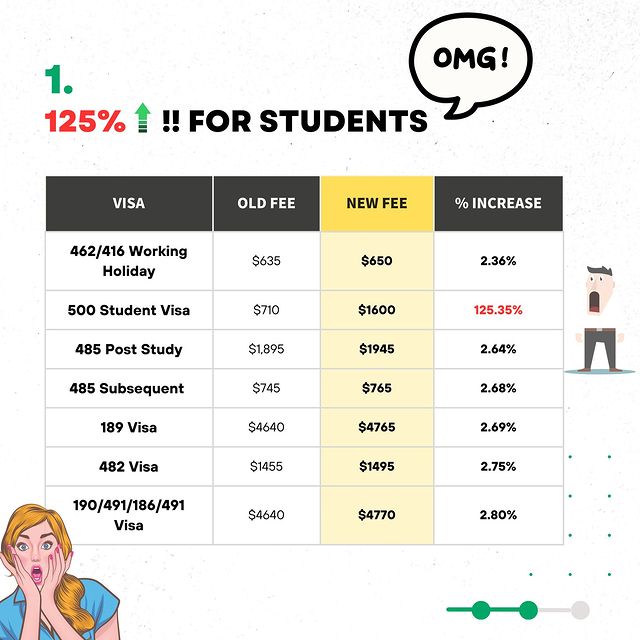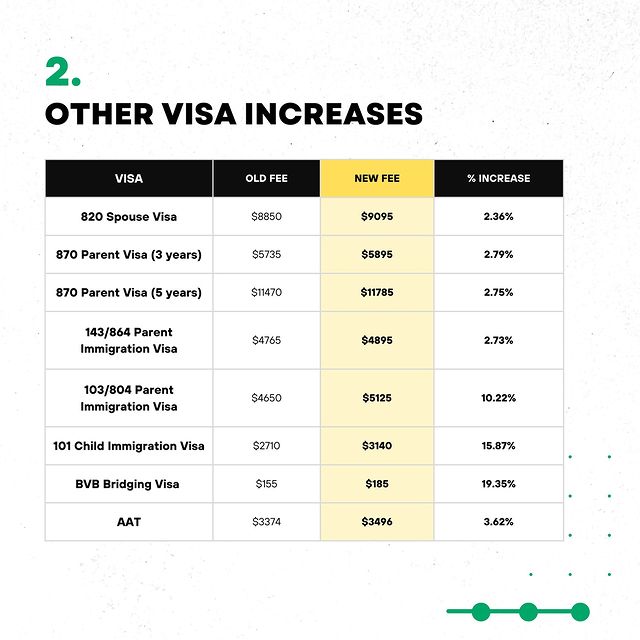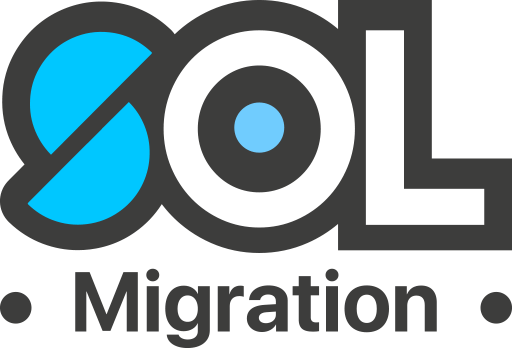Introduction
The new Migration Program year for 2024/25 has officially started, bringing a host of significant updates. Here’s a comprehensive breakdown of the changes now in effect:

1. Lodgement Fee Increases
As of July 1, 2024, government lodgement fees have increased, as they typically do annually. This includes a notable rise in the fees for appeals to the Administrative Appeals Tribunal and a sharp increase for student visa applications


2. TSMIT and FWHIT Updates
The Temporary Skilled Migration Income Threshold (TSMIT) is set to increase to $73,150. This is the minimum salary required to sponsor someone for a TSS Subclass 482 visa. Similarly, the Fair Work High Income Threshold (FWHIT) will go up to $175,000, impacting employer-sponsored age exemptions and the Global Talent Independent (GTI) program.
3. Changes to Graduate 485 Visa and Closure of 476 Visa
Big changes are coming to Graduate 485 visas lodged from July 1, 2024. These include a lower age limit and reduced stay periods. The 2-year “select degree” pathway will also close, and the Subclass 476 visa for engineering graduates will be discontinued.
A brief summary of the changes to the eligibility requirements for the Graduate visa program is below:
Old Stream Name |
New Stream Name |
Relevant old criteria |
Relevant new criteria |
| Graduate Work stream | Post-Vocational Education Work stream | Be less than 50 years of age at the time of making an application | The maximum eligible age will be reduced to 35 years of age or under at the time of application.
Hong Kong and British National Overseas passport holders will still be eligible if they are under 50 years of age. |
| Post-Study Work stream | Post-Higher Education Work stream | Be less than 50 years of age at the time of making an application | The maximum eligible age will be reduced to 35 years of age or under at the time of application.
Masters (research), doctoral degree (PhD) graduates, and Hong Kong and British National Overseas passport holders will still be eligible if they are under 50 years of age. |
The stay period granted for the Graduate visa program will also be impacted:
Old Stream Name |
New Stream Name |
New stay periods |
| Graduate Work stream | Post-Vocational Education Work stream | Applicants may continue to stay for up to 18 months. |
| Post-Study Work stream | Post-Higher Education Work stream | Stay periods will change to the following:
Hong Kong and British National Overseas passport holders may be able to stay for up to 5 years. Stay periods for Indian nationals subjec tto the Australia India – Economic Cooperation and Trade Agreement are:
|
4. Working Holiday Maker Program Adjustments
Two key changes here: UK nationals will no longer need to complete three months of specified work to get their second or third Working Holiday visa, and nationals from the Philippines will be able to access the Work and Holiday (Subclass 462) visa.
5. Enhanced Family Violence Provisions
New regulations will improve access to onshore Partner (Subclass 820/801) visas in cases where the relationship has ended due to family violence. This includes Prospective Marriage (Subclass 300) visa holders who previously had to marry their sponsor to apply for a Partner visa.
6. Updates to Visa Conditions 8107, 8607, and 8608
Changes will allow sponsored visa holders who have ceased employment up to 180 days to find a new employer (up from 60 days), and permit them to work during this period.
7. Changes to Visa Hopping Rules
From July 1, 2024, Visitor (Subclass 600) visa holders and Graduate (Subclass 485) visa holders will no longer be able to apply for a Student (Subclass 500) visa while onshore. They must apply from outside Australia and wait for a decision before entering the country.
8. Closure of the Business Innovation and Investment Program (BIIP)
The BIIP will officially close to new applicants from July 1, 2024. It will be replaced with a new National Innovation visa later in the year.

